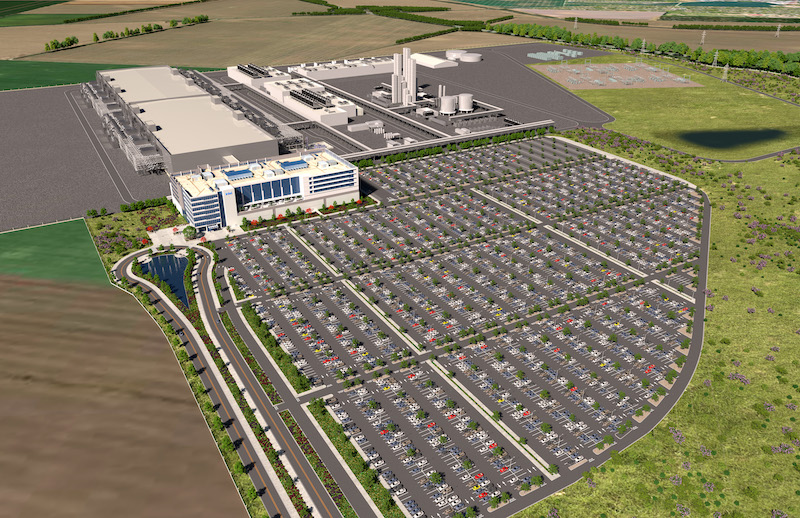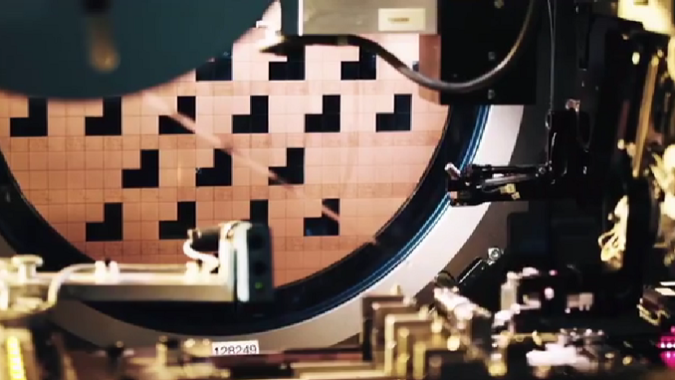The first products out of Intel’s new factories in Germany, which will start operations between 2025 and 2027, could be for high-performance computing.
“We’re eager to have the first products out for the German fab to be servicing or HPC customers. So, we’re doing that,” said Jeff McVeigh, vice president and general manager of Intel’s supercomputing group, during a press briefing ahead of the International Supercomputing Conference this week.
The company is also expanding a fab in Ireland for HPC chip customers. “We’re definitely eager to provide the supplies necessary for those needs,” McVeigh said.
Intel in March announced it was investing €33 billion to expand manufacturing operations in Europe, which includes a cutting-edge factory in Magdeburg, Germany. The company is also expanding its manufacturing operation in Ireland, and establishing a research and development hub in France to research chip technologies, artificial intelligence, and application development.

Intel at ISC also announced plans to create open-source RISC-V chips in collaboration with the Barcelona Supercomputing Center, which is focused on high-performance computing research. The lab is already working with Intel to research zettascale computing, and the new chips will be designed with the aim of reaching that goal.
The Spanish government and Intel will invest €400 million over the next 10 years into the research lab. The Spanish government in late May announced it would invest €12 billion until 2027 and through a program called PERTE Chip to boost domestic chip manufacturing, research and supply chain. Spain’s prime minister, Pedro Sanchez, last week thanked Intel CEO Pat Gelsinger for “the pioneering RISC-V processor lab” at the Barcelona Supercomputing Center.
The codesign partnership is targeting “competititive processors,” said Mateo Valero, director of BSC, to go into the center’s future-generation MareNostrum 6 supercomputer in the 2027-2028 timeframe.
The high-performance RISC-V chip lines up with Intel’s plan to design and manufacture “Made in Europe” chips. Intel previously focused on making homegrown x86 chips in its factories, but has opened the facilities to make chips based on the Arm and RISC-V architectures as part of its IDM (integrated device manufacturing) 2.0 strategy.
The German factory will make chips with new transistor technologies such as RibbonFET, which splashes gate materials all around the transistor for more efficient contact and performance. The power is moving to the backside of the wafer through a technology called PowerVia. The technologies will make chips faster and more power-efficient.
Europe doesn’t have any cutting-edge chip fabrication plant, with the most advanced being GlobalFoundries’ 28nm and 22nm plant in Dresden. For decades, Europe has relied on manufacturing sites in U.S. and Taiwan for a bulk of its chips, but EU’s European Chips Act includes investments of close to €43 billion to establish factories and strengthen the local supply chain.
SiPearl, a European chipmaker whose Rhea CPUs will be in supercomputers next year, is a potential customer for Intel’s factory in Germany.
“What matters for us is to have a fab in Europe, or in Germany, or in France. As long as it’s in Europe. We’ll use it if we can,” said Philippe Notton, CEO of SiPearl.
The Rhea chips emerged from an initiative called European Processor Initiative, which is developing sovereign chips that can be in Europe. That would shore up a weak supply chain and get products to customers faster. The EPI is mostly focusing on Arm-based and RISC-V designs.
“Our first [chip] will be made in Taiwan, we have no choice at this stage. After that we’ll see,” Notton said.
SiPearl is partnering with Intel to make its CPUs with the Ponte Vecchio GPU accelerators for high-performance computing.
The EuroHPC Joint Undertaking, which is a public-private effort to boost supercomputing in Europe, is picking up efforts to speed high-performance computing systems. The initiative’s LUMI supercomputer took the third spot on the Top500 list of the world’s fastest supercomputers released this week. The system, which has AMD’s Epyc chips and was built by HPE, delivered performance of 152 Linpack petaflops.



























































